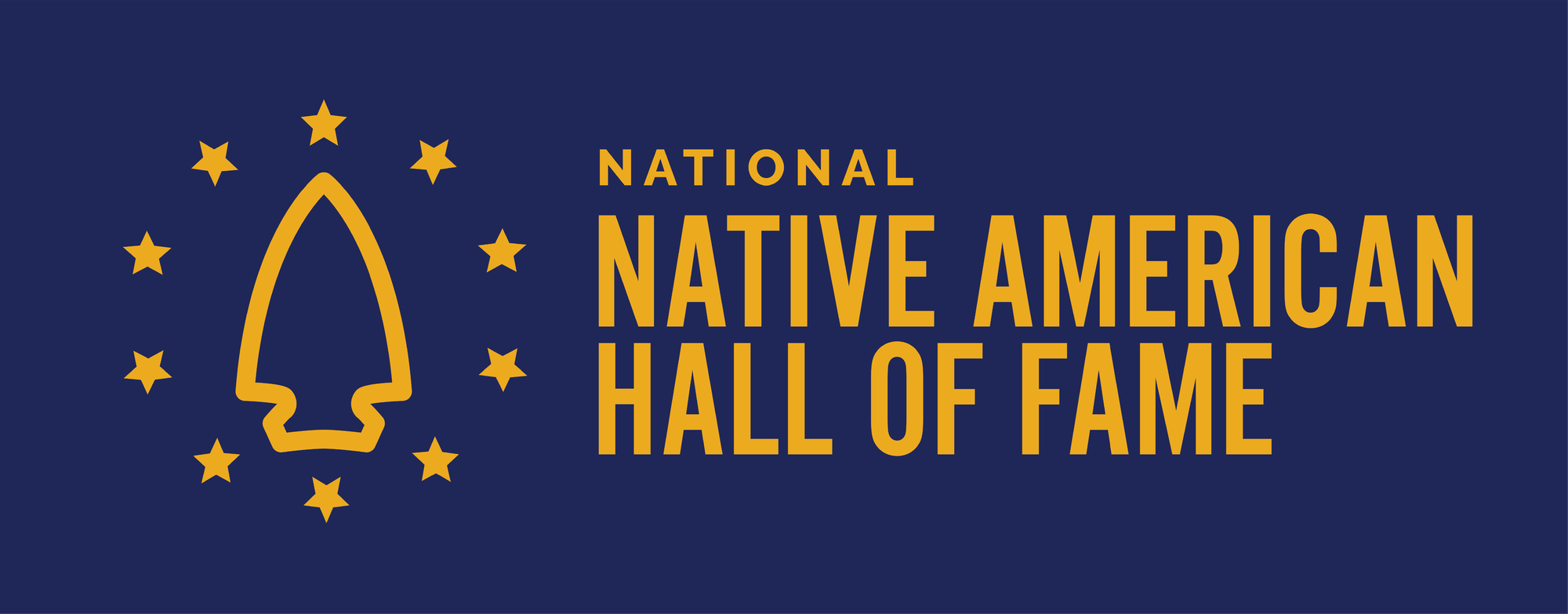
Hall of Fame will enshrine six contemporary Native American icons on Oct. 5 in Oklahoma City
OKLAHOMA CITY -- The National Native American Hall of Fame is pleased to announce the six outstanding individuals receiving induction into the 2024 Hall of Fame class. The 2024 National Native American Hall of Fame class’s contributions to Indian Country span disciplines such as government, law, journalism, education, advocacy and the arts. They will be honored at a gala on Oct. 5 at the First Americans Museum in Oklahoma City.
The 2024 inductees include Stanley Crooks (posthumous), Franklin Ducheneaux, Julie Kitka, Henrietta Mann, Veronica Homer Murdock (posthumous) and “Te Ata,” aka Mary Thompson Fisher (posthumous).
Stanley Crooks, Shakopee Mdewakanton Sioux Community. Crooks became a national Native American leader during his twenty-year tenure as Chairman of the Shakopee Mdewakanton Sioux Community. He was a lifetime member of the National Congress of American Indians, helping establish the Embassy of Tribal Nations in Washington, D.C. Crooks served as the longtime chairman of the Minnesota Indian Gaming Association and represented the SMSC at the National Indian Gaming Association.
Franklin Ducheneaux, Cheyenne River Sioux Tribe. Ducheneaux played a crucial role in crafting virtually every landmark piece of Native American legislation before Congress, including the Indian Self-Determination and Education Assistance Act of 1975, the Indian Health Care Improvement Act, the American Indian Religious Freedom Act, the Indian Child Welfare Act, the 1982 Indian Mineral Development Act, and, in 1990, the Native American Graves Repatriation Act.
Julie Kitka, Chugach Tribe / Alaska. Kitka was a long-serving president of the Alaska Federation of Natives (AFN) and served on Chugach’s Board for more than two decades. In 2021, Kitka received the Walter J. Hickel Award for Distinguished Public Policy Leadership. She also received the 2022 Ecotrust Indigenous Leadership Awards (ILA) for her tireless commitment to ensuring and advancing the rights of Alaska Natives.
Henrietta Mann, Southern Cheyenne. Mann is a celebrated activist, educator, professor, and leading figure in developing programs devoted to Native American studies. As an elected Tribal Councilor for the Cheyenne and Arapaho Tribes, she helped author federal legislation that resulted in a $15 million settlement from the US government in 1967 as part of the Indian Claims Commission. Mann has been integral in developing Native American studies at colleges and universities nationwide. In 2000, she became the first Native American to hold the endowed chair of Native American studies at Montana State University and was honored with the Montana Governor's Humanities Award. In 2021, The National Endowment for the Humanities awarded Mann the National Humanities Medal.
Veronica Homer Murdock, Colorado River Indian Tribes—Mohave. Murdock was the first woman president of the National Congress of American Indians and one of the founders of Women Empowering Women for Indian Nations (WEWIN). She served in the tribal administration as vice chair of the Colorado River Tribes from 1969 to 1979 and between 1977 and 1979.
“Te Ata,” Mary Thompson Fisher, Chickasaw Nation. Fisher was an award-winning storyteller and trained actress whose one-woman interpretations of American Indian folklore earned her national and international acclaim throughout her 70-year career. She traveled the world, performing for world leaders and heads of state, including President Franklin D. Roosevelt and Queen Elizabeth. Fisher was named the Ladies' Home Journal Woman of the Year in 1976. She was inducted into the Oklahoma Hall of Fame in 1957 and named Oklahoma's first Official “State Treasure” in 1987.
For more information on the National Native American Hall of Fame induction ceremony or to purchase sponsorships, please visit nativehalloffame.org or contact CEO James Shield at james@nativehalloffame.org.

